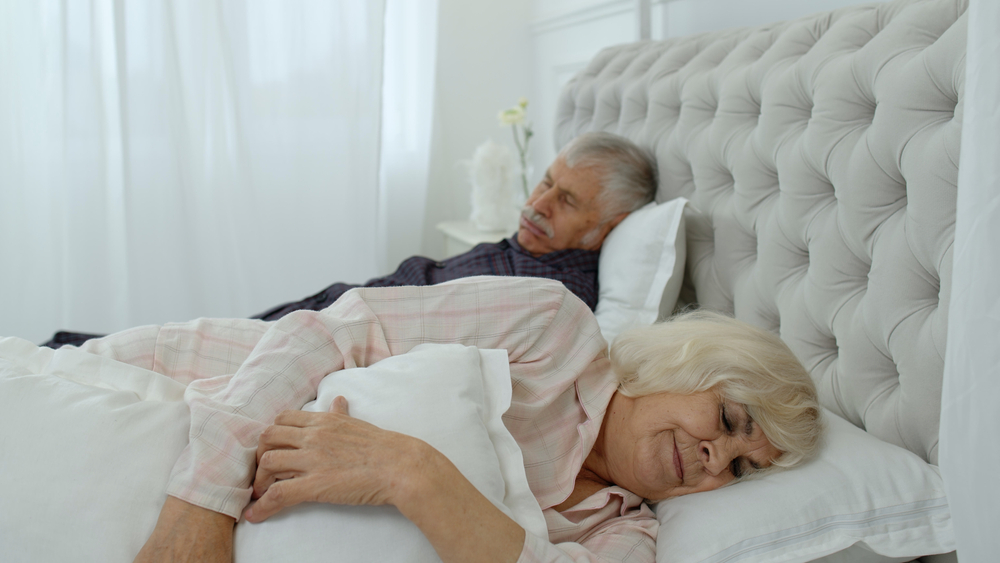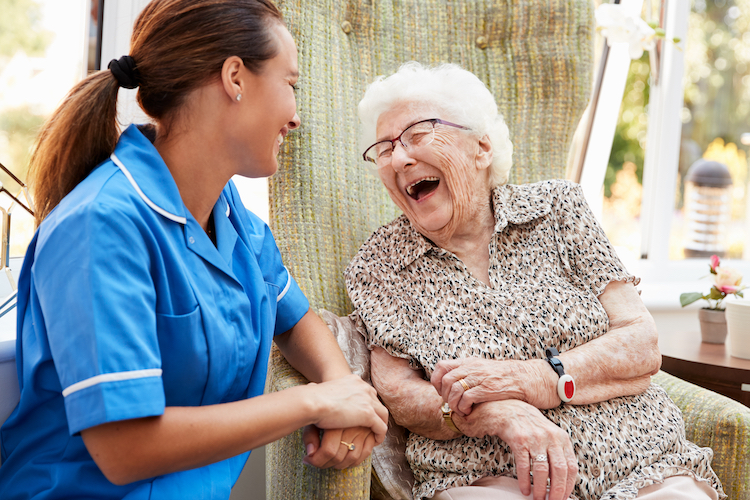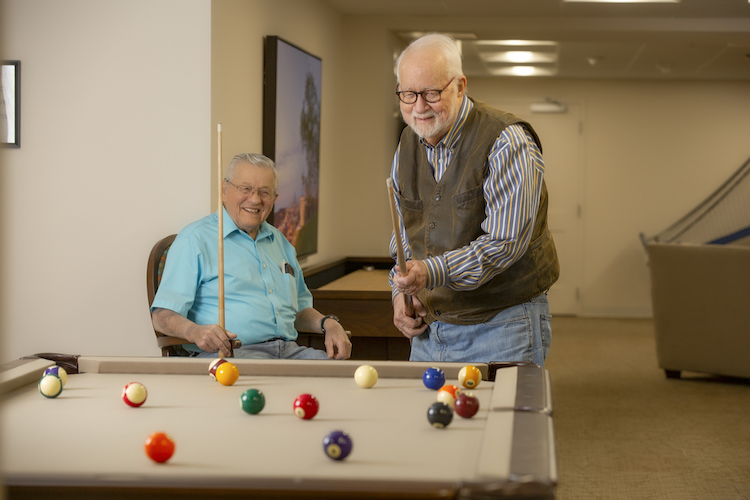It’s common for sleep to become more elusive as we age. While this may be caused by various aches and pains for some, even the most fit and healthy seniors may struggle to get a good night’s sleep.
The body naturally changes its circadian rhythms as we age, which can contribute to difficulties sleeping as older adults adjust to earlier bedtimes and earlier wake-up times. Older adults also spend more time in lighter sleep cycles and less time in deep sleep, which makes them more likely to wake up at night or come out of a full night’s sleep feeling unrested.
While you may not be able to coax your body into deeper sleep or avoid feeling particularly tired in the afternoons, there are some ways seniors can improve the quality of their sleep by having healthy habits and routines during the day!
Why Quality Sleep is Important for Seniors
Seniors who do not get enough rest—especially those with chronic insomnia—are at a much higher risk of many different health conditions, such as heart disease and diabetes. Because of this correlation between sleep and wellness, high-quality sleep can significantly improve overall well-being! Here are some ways getting more restful sleep can improve wellness for older adults:
- Lowers the risk of diabetes, heart disease, and other common health conditions
- Strengthens the immune system, preparing your body to resist illnesses (which is especially important during cold and flu season!)
- Improves your ability to make healthy choices and stay alert during the day
- Decreases inflammation and prevents digestive problems
- Gives you more energy to live an active, happy lifestyle
Six Tips for More Restful Sleep
If you’re looking for more restful sleep, these six tips for creating better, healthier routines can make all the difference! You’ve probably heard many of them before, but it’s an important reminder of how valuable these practices can be for senior wellness.
1. Have a Bedtime Routine
A regular bedtime routine signals to your mind and body that it’s time to relax and prepare for sleep. Your routine should include hygiene practices like brushing your teeth and hair, changing into clean pajamas, and even taking a shower or bath if you prefer night bathing instead of in the morning.
You should also have a strict time for going to bed and a time you wake up. It’s harder for older adults to recover from a disrupted sleep schedule, so following the same pattern is important!
2. Create a Restful Environment
Make your bedroom a place of rest by doing everything possible to make it restful. If bright lights are outside your bedroom window, use blackout curtains to encourage sleep. You might also want to use a white noise machine or fan to drown out distracting sounds. The best temperature for sleep is on the cooler side, between 60 and 68 degrees Fahrenheit. If you get cold easily, consider keeping it on the warmer end of the spectrum and snuggling up in warm blankets.
If your bed isn’t comfortable, you won’t sleep very well. By this time in your life, you should have a good idea of how firm or soft you like your mattress, but difficulties like arthritis pain may make it worthwhile to invest in a newer, firmer mattress or even a hospital bed for optimal comfort.
3. Exercise Regularly
We’ve said it before and we’ll say it again: exercise is essential for senior health and wellness! That’s why we have an on-site fitness center at St. Anthony’s complete with workout equipment and group fitness classes to encourage daily exercise in our residents.
Try to wrap up your exercise by the late afternoon or early evening. If you exercise too close to bedtime, your body will still be energized by the release of endorphins, which need to settle down before the brain is ready to sleep.
4. Eat a Balanced Diet
Nutrition is vital for seniors as it helps fuel their bodies and give them strength and energy, but it also helps regulate sleep! In fact, sleep encourages nutrition as well by giving you more energy to withstand sugary temptations.
As part of a healthy, sleep-approved diet, you should avoid consuming too much caffeine or alcohol, especially later in the day. Caffeine can be a handy quick fix when you’re feeling drowsy, but it won’t do you any favors come bedtime. Alcohol can disrupt melatonin production, causing all manner of sleep problems like insomnia, snoring, and sleep apnea.
5. Turn Off the Screens
Devices that produce blue light can suppress melatonin production, which makes falling asleep after their use very difficult! This includes televisions, tablets, computers, phones, and even some e-readers. To prevent screen use from negatively impacting your sleep, you should go screen-free for at least an hour before bed. If you enjoy reading before bed at night, use an e-reader with e-ink instead of a screen, or try a good old-fashioned paper book!
6. Skip (or Shorten) the Nap
Naps are one of retirement’s greatest pleasures, but taking too long of a nap during the day can make it hard for your body to rest properly at night. If you enjoy a nice afternoon nap, keep it brief so it won’t affect your nighttime sleep.
Rest Easy at St. Anthony’s
With spacious and relaxing apartments, group fitness classes, and highly nutritious chef-prepared meals, St. Anthony’s has the formula you need for the best sleep of your lifetime. Come relax and enjoy the best years yet here—just contact us to schedule a tour and learn more.




